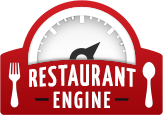10 Things You Should Know About Restaurant Finance

Know your finances as well as you know your menu.
Whether you are a current restaurant owner, or you’re getting ready to open a restaurant, managing your money means conducting a regular financial analysis of your business.
That lets you look at your overall areas of strength and weakness so you can ensure your restaurant is in the territory of profitability.
To help you manage your numbers, we look at the 10 things you should know about restaurant finance so you can improve your operation.
#1: Stay on Top of Your Budget
We assume you have a budget for things like food costs, payroll, marketing and overhead.
That’s terrific, because every restaurant needs a budget. Now, the next question might be a bit tricky, “How often do you review your budget?”
If you’re like many busy restaurateurs, you may not look at your budget often enough.
Review your budget every month. It’s a relatively quick and easy thing to do if you make it part of your regular to-do list.
By reviewing your budget on an on-going basis, you stay focused on managing your day-to-day operations while planning for the future.
For example, you may notice that your staff is spending way too much time making coffee in your outdated machine, and that’s costing you labor hours. Since you’re on top of your budget, you can add a new coffee maker as a line item the next year.
#2: Examine Reports Daily
There are some reports you should look at daily. These help you manage your inventory and your labor costs.
By looking at your daily sales report, you’ll have a good idea if you’re going to meet your monthly budget goals. It helps you plan for the following week, too.
You can also glean from this report your most popular menu items. By checking this report daily, you’ll learn if you’re buying enough of what you need to make your most popular dishes.
In addition to your daily sales report, you want to look at your staff labor report. You’ll know in an instant if you are over-staffing your restaurant.
This report helps you manage and improve your staffing to either save money or serve your customers better.
#3: Avoid Minimum Payments
When possible, you want to pay your bills in full each month. (tweet this)
For example, if you’re charging food costs to your credit card, don’t charge more than you can pay in a month. Carrying balances at interest costs you unnecessarily.
The smartest way to use your credit cards for purchases is to pay them off at the end of each month. You’ll have gotten an interest-free loan for one month, and if you have a reward card, you’ll have earned points as well.
Don’t fall into the trap of making minimum payments because that can get out of hand very quickly.
#4: Know Your Credit Score
Restaurant owners need to have good credit scores if they want to get lines of credit.
You’ll find that vendors will be reluctant to negotiate payment terms if your credit is bad.
If you are operating your restaurant as a sole proprietor, you’ll find it isn’t possible to separate your credit score.
But, if you’re restaurant is incorporated, you want to register with Dunn and Bradstreet with your legal business name. This allows you to monitor and control your business credit.
To keep your restaurant’s credit in tip-top shape, following these tips:
- Pay your bills on time. Don’t miss payments or be late. Not only does this lower your score, but you’ll incur late fees and finance chargers.
- Avoid carrying large balances as these are red flags.
#5: Compare Your Numbers
A good way to maintain the financial health of your restaurant is to review your income statement period over period.
Compare financial statements paying special attention to your revenue and expenses over time. This helps you optimize your cash management, keep operating costs in check and improve your cash flow.

Your financial health and well-being is vital.
#6: Implement Top Notch Accounting System
When it comes to your restaurant finances, you want to use an excellent accounting system or service.
Software like QuickBooks can greatly help you manage your finances.
You can’t manage what you can’t count, and if your accounting system (or lack of accounting system) isn’t set up properly, you won’t have a good idea of your financial stability.
A properly managed restaurant is also managing its accounting books well.
If you struggle in this area, consider hiring an accountant or restaurant financial consultant to help.
#7: Price Menu Items Accurately
How are you pricing your menu items?
Are you taking food costs, overhead and payroll into consideration when pricing your menu items?
Or, are you taking the easy way out and checking your competitor’s prices and adjusting yours accordingly?
We recommend combining both of these methods. Know exactly what you need to charge to turn a profit, and know what you need to charge to compete with restaurants in your area.
To manage your food costs appropriately, you have to know what each one of your menu items costs you so you don’t overspend on each individual ingredient.
Be detailed when figuring out the prices of menu items, and you’ll keep your numbers in check.
#8: Take Inventory
Some restaurant owners and managers are extremely lax when taking inventory. They don’t know how much stock they’re losing to waste or theft.
To calculate an accurate food cost, you have to know what your beginning and ending inventories are for any given period.
Managing food costs means knowing what they are, and you can’t do this without thoroughly knowing your inventory.
#9: Set Goals
Are you flying blind, or do you have financial goals for your restaurant?
Have you made a plan for how much you’d like to grow your restaurant and increase sales?
You are responsible for meeting the financial goals of your restaurant, and to do that, you must first set them.
Set your goals based on the following:
- Previous year’s performance
- Percentage of growth
- Current trends
- Expected economic impacts
#10: Pay Bills Precisely
Don’t rely on your bank balance to pay your bills. (tweet this) This is generally not an accurate accounting of how much money you really have.
Use your accounting system to really understand and know your cash flow before you start spending money.
Final Thoughts
We’ve looked at 10 things you should know about restaurant finance as you move forward through the year.
Take these tips and use them to set your financial house straight and keep your restaurant profit margins high.
Are you an existing restaurant? Do you have tips for managing your money for our readers? We’d love to hear it. Please comment below.
Images: Olu Eleta and Helen Martinez


Leave a Reply